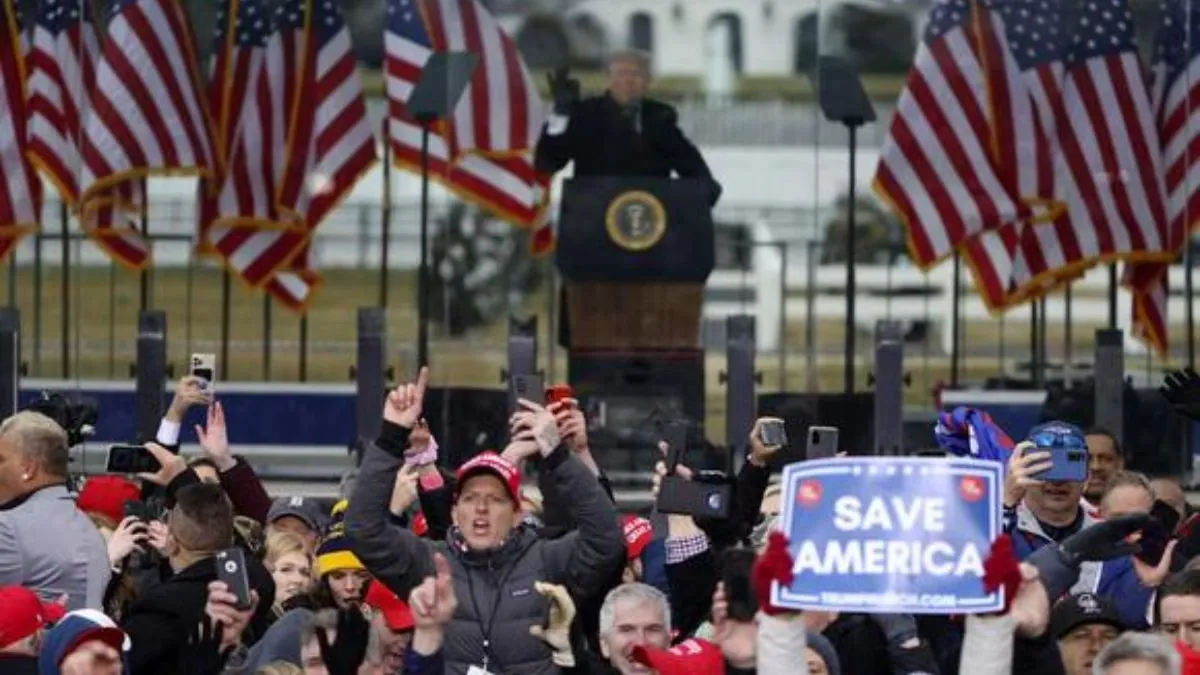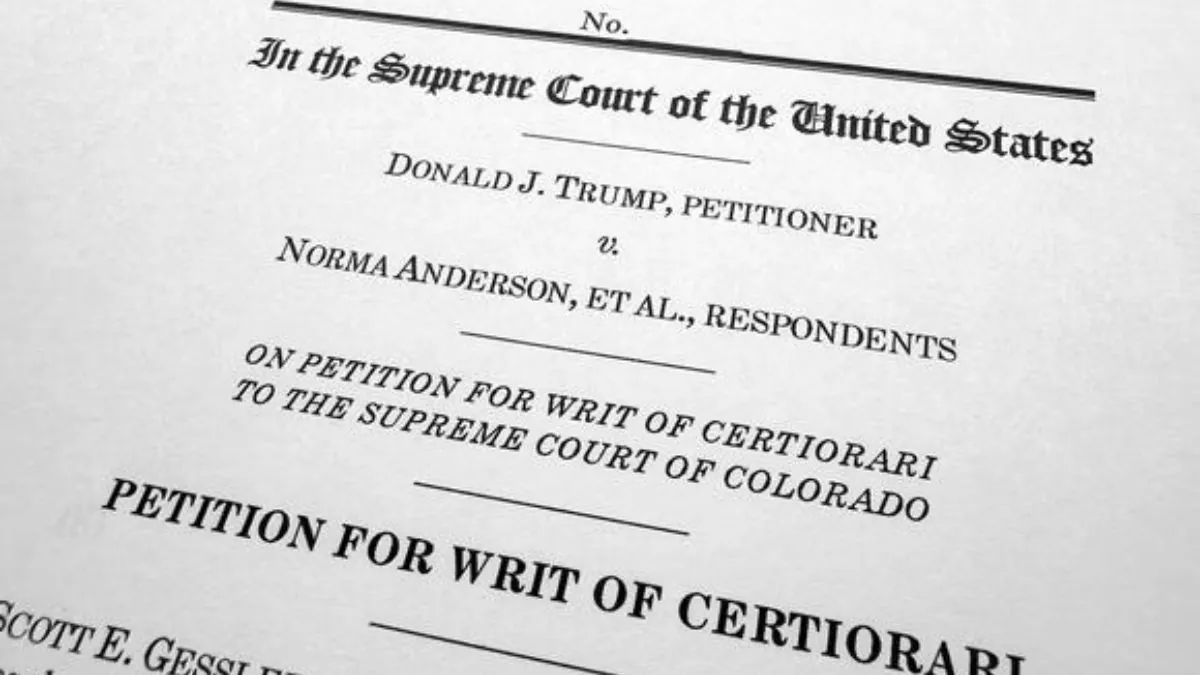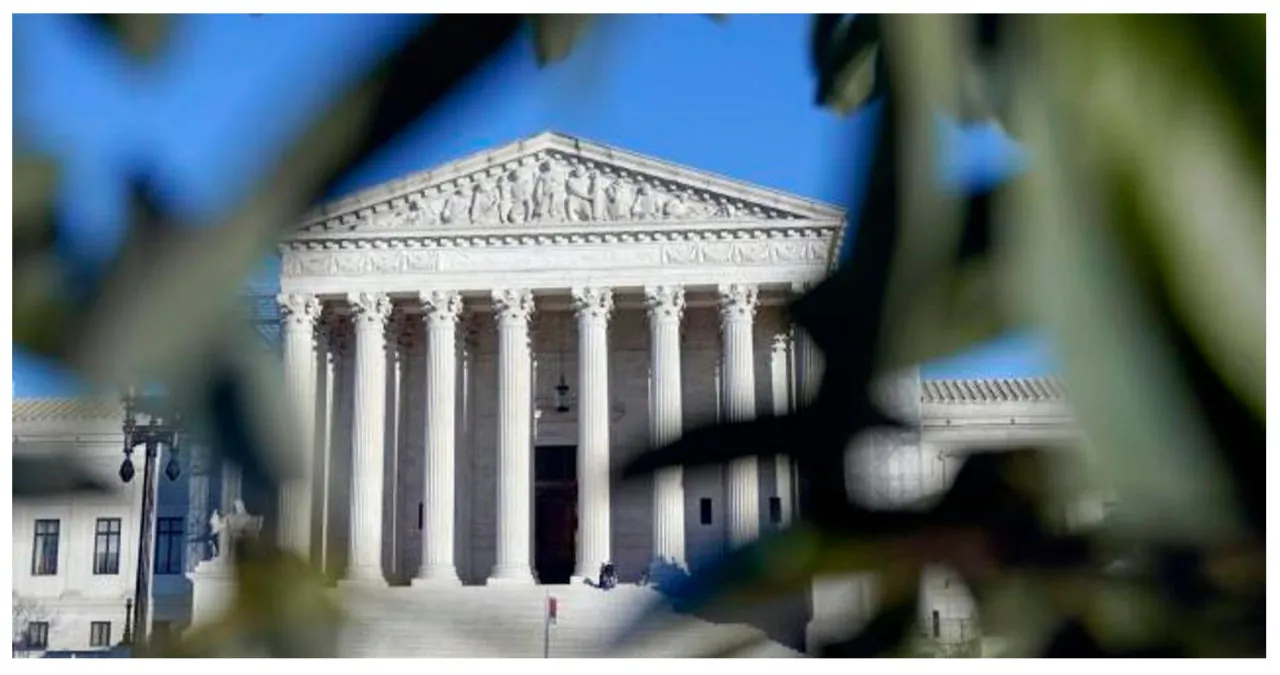Aiexpress – Former President Donald Trump filed a brief to the U.S. Supreme Court on January 18, 2024, in an effort to overturn the Colorado Supreme Court’s decision to remove him from the state’s primary ballot.
Norma Anderson, a former Colorado state lawmaker and Republican, alongside several other plaintiffs, filed a lawsuit in September 2023 to prevent Trump from appearing on the Colorado ballots for the 2024 elections. The plaintiffs contended that Trump’s actions, aimed at overturning the 2020 election and disrupting the peaceful transfer of power, constituted an insurrection against the United States Constitution. They based their arguments on Section 3 of the 14th Amendment, which prohibits insurrectionists from holding public office.
On December 19, the Colorado Supreme Court delivered its verdict in the case, initially referred to as Anderson v. Griswold. The justices in Colorado determined that due to his actions on January 6, 2021, Trump was ineligible to hold the position of president. Furthermore, they upheld the trial court’s finding that Trump had participated in an insurrection.
The court majority stated that these actions were a clear and active involvement in the insurrection.
More than a dozen legal challenges to Trump’s candidacy in other states are based on Section 3. Jurists, constitutional law scholars, and many complainants argue that Trump should be disqualified from holding office because of his alleged involvement in the insurrection or rebellion against the U.S. This claim is based on his actions before, during, and after the attack on the U.S. Capitol on Jan. 6, 2021.
In his bid to challenge the Colorado Supreme Court’s ruling, Trump took his case to the U.S. Supreme Court. The justices have now agreed to review the matter. In his brief submitted on January 18, Trump put forth several arguments to counter the Colorado decision. One of his key contentions was that Section 3 of the 14th Amendment should not be applicable to the presidency. Additionally, he maintained that he did not participate in any insurrection against the United States.
In his defense, Trump’s brief argues that his actions on January 6, 2021, were not inciting or participating in an ‘insurrection’. He maintains that his calls for peace, patriotism, respect for law and order, and his directive to the Secretary of Defense to protect the American people were all within the bounds of his role as President.

Officers and insurrections
In Trump’s brief, he criticizes the Colorado Supreme Court’s questionable interpretation of Section 3 of the Fourteenth Amendment. He contends that Section 3 does not pertain to the presidency because the President is not considered an ‘officer of the United States.’ Trump highlights other constitutional provisions that specifically refer to the term ‘Officer’ and asserts that it only encompasses political appointees, like the Secretary of State, rather than elected officials.
Some argue that Trump confuses the original intent of the Framers when the Constitution was first ratified with the intent of the 39th Congress that drafted the 14th Amendment many years later. Constitutional law scholars point out that the 39th Congress did intend for Section 3 to apply to the presidency, as evidenced by the specific comments made by senators and representatives in the congressional records.
The first question that the Supreme Court will likely address is whether Section 3 applies to the presidency. Although Trump argues that he did not participate in an insurrection, the justices are unlikely to delve into the question of his involvement. Generally, the court refrains from challenging the factual findings made by trial courts.
The justices might need to address the additional legal issues raised by Trump. According to Trump, although Section 3 may apply to the presidency, it cannot be enforced since Congress has not enacted a law for its enforcement. However, as a constitutional law scholar, I believe that Trump’s most compelling argument and the justices’ simplest legal question lies in the straightforward language of Section 3. It explicitly prohibits insurrectionists and rebels from holding office, without mentioning anything about running for office.
Bullets, not ballots
The 14th Amendment, which was ratified in 1868, is classified as a “Reconstruction Amendment,” along with the 13th and 15th amendments. The Reconstruction Amendments were ratified by Congress and state legislatures in the years following the conclusion of the Civil War. In this regard, the framers of the Reconstruction Amendments aimed to, among other things, prohibit Confederate individuals from holding public office after their unsuccessful rebellion against the Union.
Section 3 of the 14th Amendment states:
“No person shall be a Senator or Representative in Congress, or elector of President and Vice-President, or hold any office, civil or military, under the United States, or any State, who, having previously taken an oath, as a member of Congress, or as an officer of the United States, or as a member of any State legislature, or as an executive or judicial officer of any State, to support the Constitution of the United States, shall have engaged in insurrection or rebellion against the same, or given aid or comfort to the enemies thereof. But Congress may by a vote of two-thirds of each House, remove such disability.”
Section 3 of the 14th Amendment can be quite confusing for many readers with its 15 commas. Constitutional law scholar, Mark Graber, has shed light on the meaning and application of each sentence fragment and clause in a recent article for The Conversation. According to Graber, this section of the amendment essentially states that individuals who resort to violence when elections do not yield their desired outcome cannot be considered trustworthy democratic officials.

Settling the unsettled
The Supreme Court has decided to review Trump’s appeal in early January 2024. This is because the question of whether Trump is eligible to serve as president of the United States again is a crucial issue in a legal area that has not yet been resolved. Although the Supreme Court has dealt with certain cases of insurrection and rebellion in the past, it has never encountered this particular question regarding Section 3.
The Colorado Supreme Court’s decision to bar the former president from the 2024 presidential primary ballot will be reviewed by the Supreme Court.
The Supreme Court could address multiple legal questions in relation to this specific issue. These questions may include whether Section 3 applies to the presidency and whether it solely prohibits a candidate from holding office or also restricts their appearance on the ballot. Additionally, the court may examine the factual matter of whether the former president was involved in an insurrection or rebellion against the United States.
The Supreme Court has scheduled oral arguments for Trump v. Anderson on February 8, 2024.

